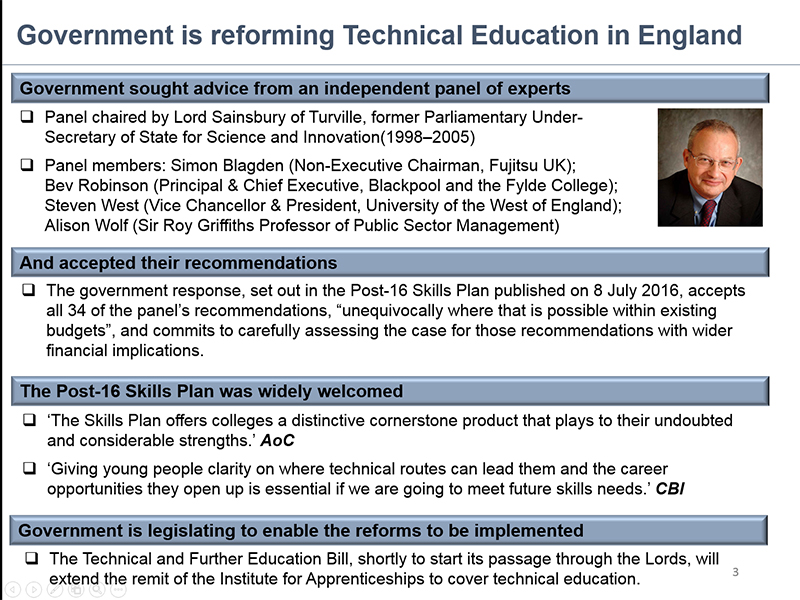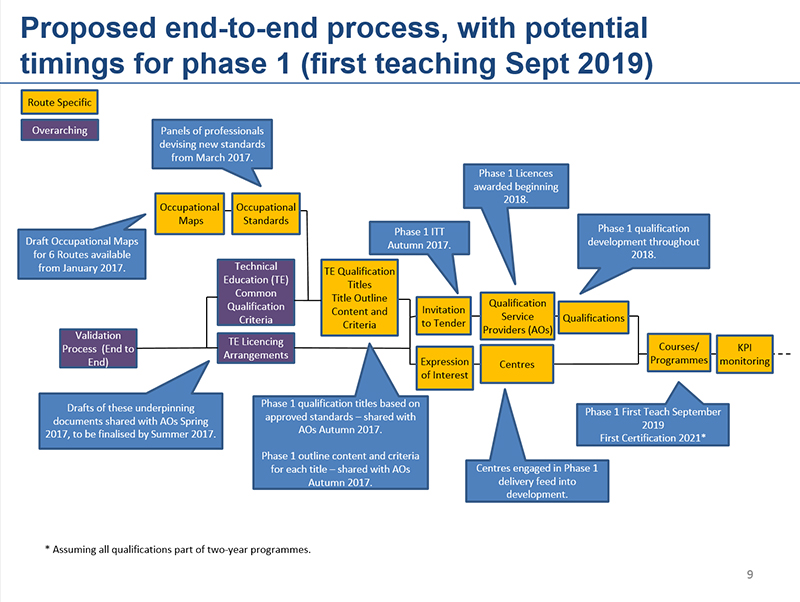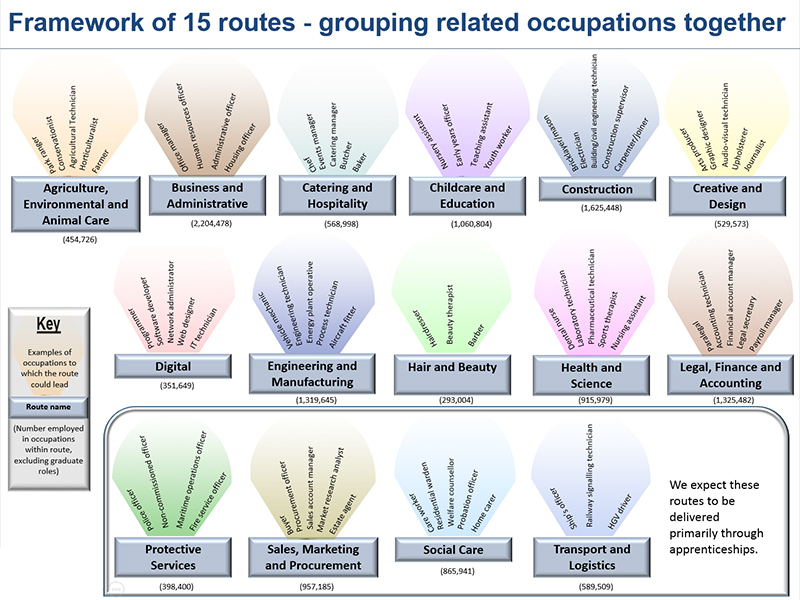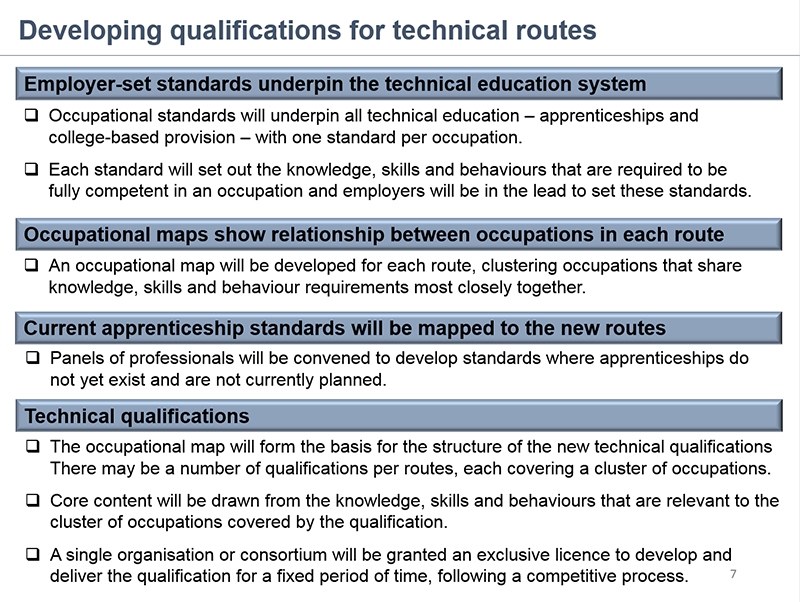As reported in FE Week yesterday, the Budget on Wednesday will announce new money for technical education to fund what some national newspapers have called ‘T-Level’. The government said it was “the most ambitious post-16 education reforms since the introduction of A-levels 70 years ago.”
Is the introduction of T-Levels a new announcement?
No. The Government first announced in November 2015 that they had big plans for reforming Post-16 skills training, starting with a review by a panel led by Lord Sainsbury.
In May 2016 FE Week exclusively reported that there would be an academic and vocational divide at 16, with 15 new technical education routes.
Then, in July the government officially responded to the Sainsbury review and confirmed the plans for 15 routes in a Post-16 Skills Plan.

In July the government said there was no new money to fund the courses in these 15 routes, so what is new is a commitment to increase teaching hours from 600 to 900 with additional investment of £500m by September 2022.
See DfE slide below for more detail

What is the timescale for the introduction of T-Level?
– April 2018 : the Institute for Apprenticeships (launching next month) becomes Institute for Apprenticeships and Technical Education
– October 2018 : Procurement begins for new technical qualifications (single awarding bodies)
– February 2019 : Technical qualifications approved for ‘pathfinder’ routes
– September 2019: First teaching of ‘pathfinder’ routes
– September 2020 – September 2022 – Phased teaching of other routes
See DfE slide below for more detail

Will there only be 15 T-Levels?
No. There are 15 routes but multiple occupations within them and four of the routes are to be delivered “primarily through apprenticeships”. For example, the journalism occupation sits in the same route as upholstery (see DfE slide below). Also read this from FE Week.

Is the T-Level a qualification?
Yes. As explained in the DfE slide below, qualifications will be developed to cover “core content” and a single organisation or consortium will be granted an exclusive licence to develop and certificate them.









Two major questions for providers and students.
1 What will be the ‘equivalence’ of the end qualification e.g. A Level equivalent? I know this sounds like a false comparison,or a forced one, but it is important re standing (or subsidiarity at worst) and the next point:
2 Progression opportunities to Technical HE etc? Depends on the answer to 1.
An interesting and potentially very worthwhile transformation of qualifications that could promote these vocationally relevant awards as being different, but on a par with ‘A’ levels.
However a number of questions need to be clearly addressed:
How will this align with apprenticeship initiatives?
Will there be direct employer involvement in the curricuum delivery?
How will specific career pathways be mapped onto the qualification?
How will ‘T’ levels relate to exisiting qualifications or will they replace them?
Where will the tutors come from..
The Department of Education have given Tech Levels parity of esteem to A levels due to the rigour of the assessment. Tech levels are designed to provide students with opportunities to progress to an advanced/ degree apprenticeship leading to employment in a particular sector, or to HIgher Education to provide students with an opportunity to study for a degree in their related sector and occupational area. Tech Levels have been allocated UCAS points, the UCAS points allocated depend on the size of the Tech Level studied and the grade achieved. For many students these qualifications will be an attractive option as they provide the opportunity to obtain a qualification related to the occupational area they wish to work in.
It’s vital that HE recognise and endorse these qualifications in their own right to support progression.
The additional teaching time is a worry, at the moment at my college students have one or two days a week off the timetable to fit in the placement. Sometimes they already have a part time job and/or other commitments. If they have a job that fits their course they can count it as the placement though.